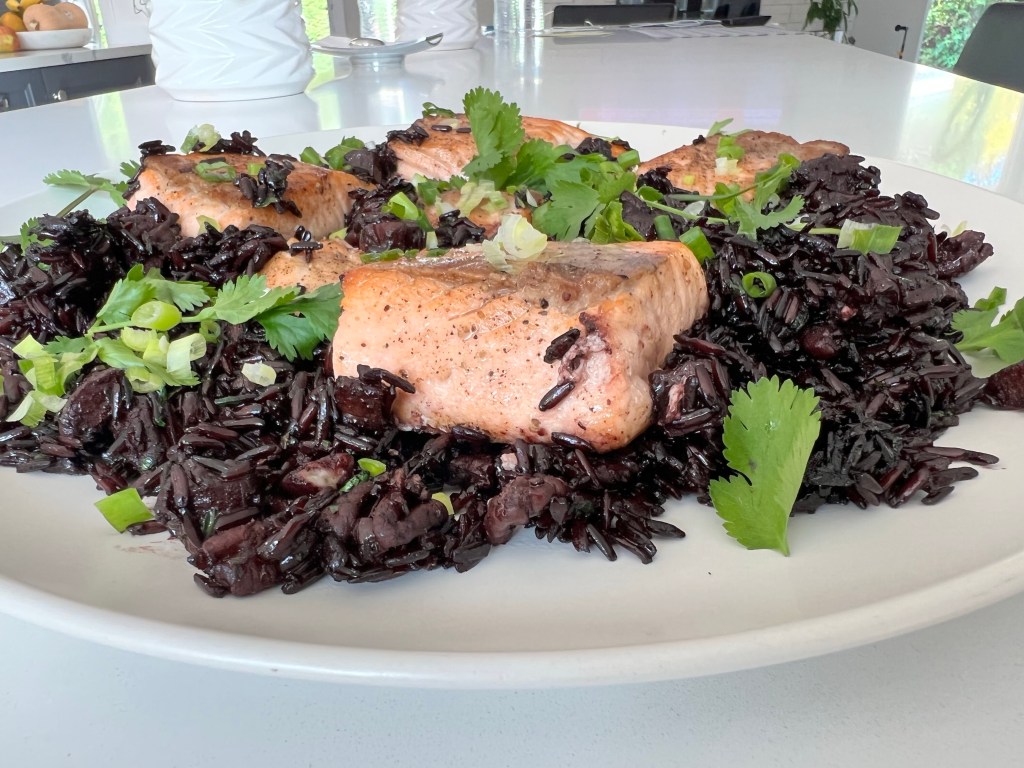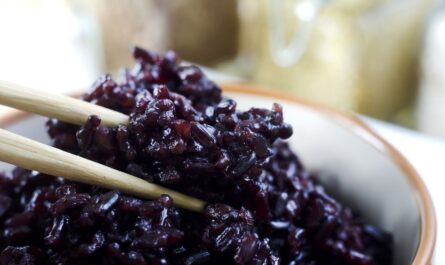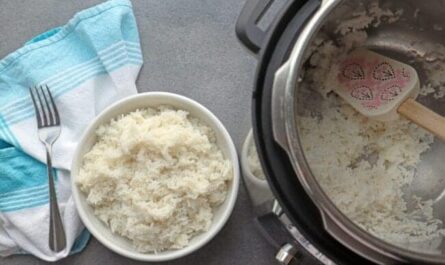The world of rice is vast and varied, with different types offering unique flavors, textures, and nutritional profiles. As sushi lovers, choosing the right type of rice can significantly impact the quality and taste of your sushi. In this article, we will explore the nutritional differences between black rice and white rice, helping you make informed decisions for your next sushi creation.

Understanding the Basics of Rice
Rice is a staple food for more than half of the world’s population, and it comes in numerous varieties. Two of the most popular types are black rice and white rice. Both have their unique characteristics that make them suitable for different culinary uses. While sushi rice is often used in Japanese cuisine, understanding the nutritional differences between black and white rice can enhance your sushi experience.
Nutritional Content of Black Rice
Rich in Antioxidants
Black rice is often referred to as ‘forbidden rice’ due to its rich color and historical significance. This type of rice is packed with antioxidants, particularly anthocyanins, which give it the characteristic dark hue. These antioxidants help combat inflammation and reduce the risk of chronic diseases.
High in Fiber
One of the key benefits of black rice is its high fiber content. Fiber is essential for digestive health and can aid in weight management by promoting a feeling of fullness. This makes black rice a great choice for those looking to maintain a healthy diet.
Source of Essential Nutrients
Black rice is a good source of essential nutrients such as iron, vitamin E, and some B vitamins. These nutrients are crucial for maintaining healthy skin, boosting immunity, and supporting overall well-being.
Nutritional Content of White Rice
Low in Fiber
White rice, on the other hand, is known for its softer texture and milder flavor. However, it is low in fiber compared to black rice. This is because the outer husk, bran, and germ are removed during processing, which reduces the fiber content.
High in Carbohydrates
White rice is primarily composed of carbohydrates, which provide a quick source of energy. While this can be advantageous for athletes or those in need of rapid energy replenishment, it may not be suitable for individuals seeking to control their blood sugar levels.
Fortified with Nutrients
To make up for the loss of nutrients during processing, white rice is often fortified with vitamins and minerals. Common nutrients added include iron, folic acid, and B vitamins. This fortification can help support overall health when consumed as part of a balanced diet.
Comparing Black Rice vs White Rice Nutrition
When comparing black rice vs white rice nutrition, it’s essential to consider your dietary goals and preferences. Black rice offers higher fiber content and more antioxidants, making it a healthier choice for those focused on nutrition. White rice, with its softer texture, may be preferred for certain dishes, including some sushi varieties. For sushi lovers, understanding these differences can enhance the culinary experience.
Health Benefits of Black Rice
Supports Heart Health
The high levels of anthocyanins in black rice contribute to heart health by reducing cholesterol levels and improving blood vessel function. Incorporating black rice into your diet can lower the risk of heart disease.
Promotes Weight Loss
With its high fiber content, black rice can aid in weight management by promoting satiety and reducing overall calorie intake. This is particularly beneficial for those on a weight loss journey.
Improves Digestive Health
The fiber in black rice supports a healthy digestive system by preventing constipation and promoting regular bowel movements. This can lead to improved gut health and overall well-being.
Health Benefits of White Rice
Provides Quick Energy
White rice is an excellent source of quick energy due to its high carbohydrate content. This makes it ideal for athletes or those engaging in intense physical activities.
Easy to Digest
The low fiber content in white rice makes it easy to digest, which is beneficial for individuals with digestive issues or those recovering from illness.
Versatile Culinary Use
White rice’s mild flavor and soft texture make it a versatile ingredient in various dishes, including sushi. Its adaptability allows for creative culinary experiments.
Cooking Tips for Black Rice
Cooking black rice requires a bit more time and water compared to white rice. Rinsing it thoroughly before cooking helps remove excess starch, resulting in a fluffier texture. For sushi preparations, consider using a sushi rice thermometer to achieve the perfect consistency. Learn more about using a sushi rice thermometer for cooking black rice.
Cooking Tips for White Rice
White rice is relatively easy to cook and doesn’t require as much water as black rice. For sushi lovers, it’s essential to get the right texture by rinsing the rice thoroughly before cooking. Discover more about the differences between sushi rice and medium grain rice to enhance your sushi-making skills.
Conclusion: Making the Right Choice
In the debate of black rice vs white rice nutrition, the choice ultimately depends on your dietary needs and culinary preferences. Black rice offers a wealth of nutrients and health benefits, making it a fantastic addition to a balanced diet. However, white rice’s mild flavor and versatility are perfect for various dishes, especially sushi. Sushi lovers can explore both types of rice to create unique and flavorful sushi experiences. For more insights on black rice, visit this external link.

FAQs
Is black rice healthier than white rice?
Yes, black rice is generally considered healthier due to its higher fiber content and antioxidant levels. It offers more nutrients and health benefits compared to white rice.
Can white rice be part of a healthy diet?
Yes, white rice can be part of a healthy diet when consumed in moderation. It provides quick energy and is often fortified with essential nutrients.
Which type of rice is better for sushi?
Both black and white rice can be used for sushi, but white rice is more commonly used due to its mild flavor and sticky texture. However, black rice can add a unique twist to sushi dishes.
This article contains affiliate links. We may earn a commission at no extra cost to you.




